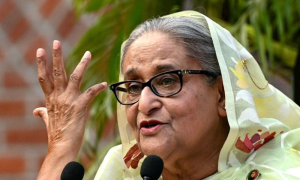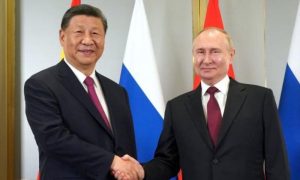ISLAMABAD: Pakistan’s Foreign Minister, Jalil Abbas Jilani, urged member states of the Economic Cooperation Organization (ECO to transform their intra-regional trade dynamics and enhance regional trade integration.
During the 27th ECO Council of Ministers meeting in Azerbaijan’s capital, Jilani highlighted that ECO’s intra-regional trade accounted for less than 8% of the region’s total trade, significantly lower than other regional groupings such as the European Union, where intra-regional trade exceeds 70%.
Despite encompassing 8 million square kilometers and half a billion people, representing 15% of the world’s population, the ECO region only contributes around 2% to global trade.
Jilani emphasized the importance of realizing the objectives outlined in the “ECO Vision 2025” adopted during the 13th ECO Summit in Islamabad. He called for concerted efforts and a realistic timeframe to achieve the goals, highlighting the significance of the ECO Trade Agreement (ECOTA) in promoting intra-regional trade and socio-economic prosperity. The early implementation of ECOTA, according to Jilani, would boost transit and trade activity, necessitating cooperation among member states.
Jilani reiterated Pakistan’s commitment to ECO, emphasizing its geopolitical significance as the crossroads of North-South and East-West hemispheres. He pointed to critical transport corridors, such as the International North-South Transport Corridor (INSTC), China-Pakistan Economic Corridor (CPEC), and the Belt and Road Initiative (BRI), passing through the region.
Foreign Minister @JalilJilani addresses the 27th ECO Council of Foreign Ministers in #Shusha
1️⃣0️⃣-1️⃣0️⃣-2️⃣0️⃣2️⃣3️⃣
🧵Follow thread for highlights ⬇️ pic.twitter.com/69evnwCCLY
— Ministry of Foreign Affairs – Pakistan (@ForeignOfficePk) October 10, 2023
Pakistan Highlights ECO’s Geopolitical Significance
The foreign minister proposed three key steps to unlock the ECO region’s geo-economic potential: the development of road and rail projects, liberalization of visa regimes, and simplification of border procedures. He also highlighted Pakistan’s efforts in enhancing transit connectivity and encouraged the notification of more Border Crossing Points as TIR Stations to facilitate trade operations.
Jilani addressed the issue of global warming, stressing the importance of transitioning to “Green and Low-Carbon Solutions” to ensure a sustainable future. He thanked Azerbaijan for designating 2025 as the ‘Year of Green Transition and Interconnectivity,’ bringing climate change to the forefront.
Regarding Afghanistan, Jilani noted the improved security situation but highlighted the need to address international concerns related to inclusivity, women’s rights, and counterterrorism efforts. He emphasized the role of constructive engagement with the Interim Afghan Government and regional connectivity projects like CASA-1000, Trans-Afghan Railways, and TAPI in achieving economic revival, stability, and prosperity in Afghanistan.
Jilani concluded by emphasizing the importance of peace, development, harmony, and respect for cultural diversity in the world, underscoring the need for dialogue and diplomacy to resolve conflicts and build bridges for a safer and more interconnected world.























